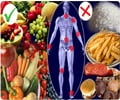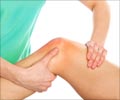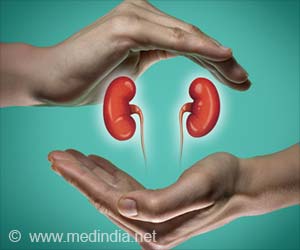Weight loss alleviates arthritis pain and improves the quality of life for persons with arthritis, particularly if they are overweight or obese.
- Arthritis affects more than 58 million persons in the United States. 39 million people with arthritis are overweight or obese
- Maintaining a healthy weight can help adults with arthritis reduce pain and enhance function
- Weight loss reduces arthritic pain and improves the effectiveness of your medications
Rheumatoid Arthritis Affects Joint Health
As the disease progresses, rheumatoid arthritis inflames the synovium and eventually erodes the bone and cartilage that comprise the joint. RA causes the joint to become crooked and out of shape as the tendons and ligaments that keep it in place degenerate. Most patients with rheumatoid arthritis are between the ages of 30 and 50, with women being more susceptible than men.Can Weight Loss Help with Rheumatoid Arthritis?
Due to decreased physical activity, arthritis can make you prone to weight gain. Losing weight is one of the most important things your doctor may suggest you do because it can be effective in the treatment of arthritis. Obesity and arthritis do not work well together, according to research, and extra weight can wreak havoc on your joint health. However, because RA sufferers experience physical aches, edema, and exhaustion, losing weight might be difficult for them. Losing weight reduces the stress on your joints, improving mobility, decreasing pain, and preventing future joint deterioration.How can People with Rheumatoid Arthritis Lose Weight
People with rheumatoid arthritis find it difficult to lose weight due to a lack of physical activity and the use of certain drugs. As a result, many patients struggle to manage their disease properly. Patients suffering from RA have a better chance of losing weight if they follow certain basic suggestions and practices.Avoid crash dieting:
People should not have unreasonable expectations of their bodies and should not fall prey to online fads such as 'crash diets', which often do more harm than good to their bodies. It is critical to recognize that reducing a little weight at a time is a healthy technique that will assist you in maintaining balance. They may lose weight immediately with short-term techniques, but the results will be short-lived and may impair their metabolic rate, impact their immune system, disrupt bowel patterns, heightening their immune response, and diminish their energy levels, which can ultimately create more inflammation. Instead of crash dieting, it is better to start a fitness regimen and follow a balanced diet.Intermittent fasting:
Create an eating pattern and a cycle between eating and fasting intervals. A balanced cycle could consist of fasting for 16 hours and then eating for 8 hours. During these fasting periods, your body will have plenty of time to recuperate, resulting in less inflammation. It is suggested that you consult with your doctor before beginning a diet regimen.Autoimmune Protocol Diet:
This is a relatively recent food-based strategy for reducing undesired inflammation in the body. It is a very limited diet that primarily consists of meat and vegetables that improves gut health, nutrient density, food sensitivities, and blood sugar and immune system regulation to reduce inflammation and balance hormones. If you stick to this diet for about a month, you will be able to eliminate inflammatory foods, gut irritants, and immune stimulants.Consume enough water and nutritious foods:
Arthritic patients must be alert while eating, watch their body cues, and eat only when they are hungry. Such patients should also retain rigorous portion control to avoid emotional eating. In addition, arthritis patients must drink at least 4 to 5 liters of water every day to decrease weight, increase energy, and delay muscular tiredness. Ample water consumption will help you feel fuller for longer periods without adding any extra calories.Reduce your sodium intake:
For an average adult, 2,300 mg of salt per day, or roughly a teaspoon of regular iodized table salt, is suggested. If your intake is higher, you will feel bloated and gain weight. To avoid weight gain, limit sodium consumption to 1,500 mg per day. A teaspoon of salt per day is recommended for middle-aged and older persons with high blood pressure.Other steps, such as getting enough sleep, eating foods high in vitamins B, D, Omega-3 acids, and magnesium, and taking glutamine supplements, can aid with cramps and ensure normal muscle function.
Source-Medindia
















